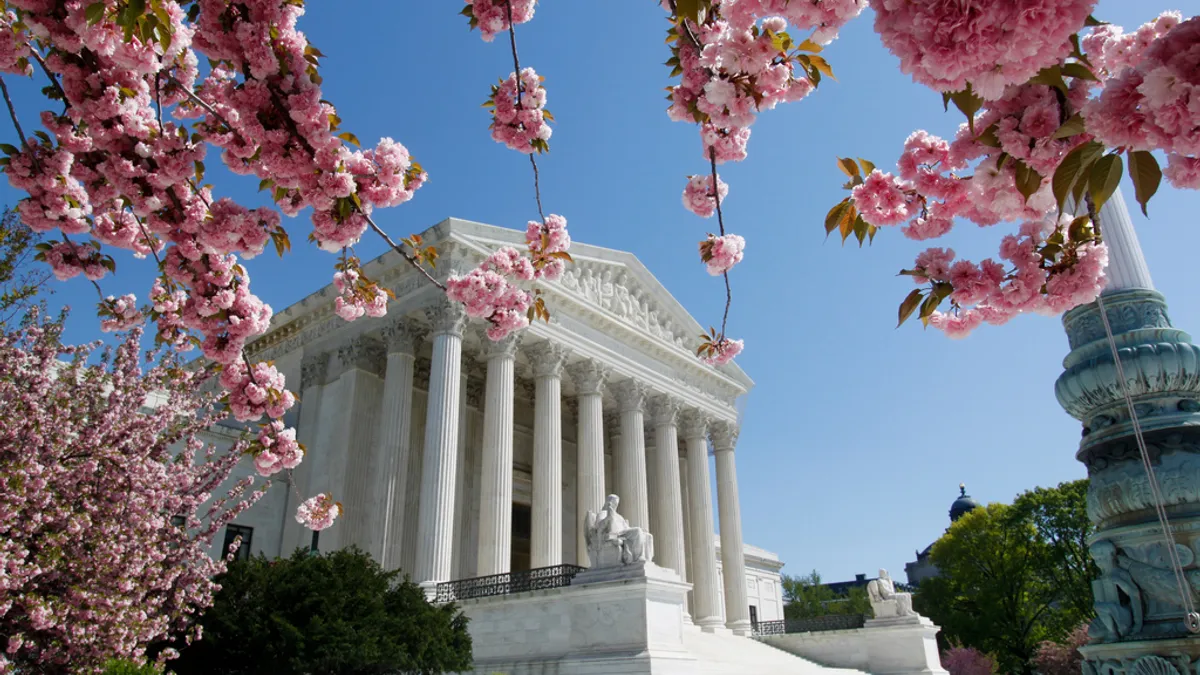Dive Brief:
-
The U.S. Supreme Court has let stand Federal Reserve regulations on swipe fees that retailers have insisted are unfair and not in accordance with Congressional intent.
-
The court Tuesday set aside without comment a regulation stemming from the 2010 Frank-Dodd banking reform law that set limits on so-called swipe fees. The fees by banks on payments averaged 44 cents per transaction in 2009 and were originally limited to 12 cents by the Fed in light of the reform legislation.
-
But after input by banks, the limits were changed to 21 cents, plus money to offset losses due to fraud. Retailers won a round in court but lost on appeal, and the Supreme Court is not weighing in.
Dive Insight:
The swipe fees that are now definitively the law of the land are only about half of what they once were, but still too high, retailers say. The only recourse left, though, would be to persuade Congress to step in and spell out what the transaction fees should be—a daunting prospect.
Tuesday’s outcome "means retailers will keep paying billions of dollars more than they should, and that fee-hungry banks will continue to rake in unearned profits that ultimately come out of consumers’ pockets," said National Retail Federation general counsel Mallory Duncan.















